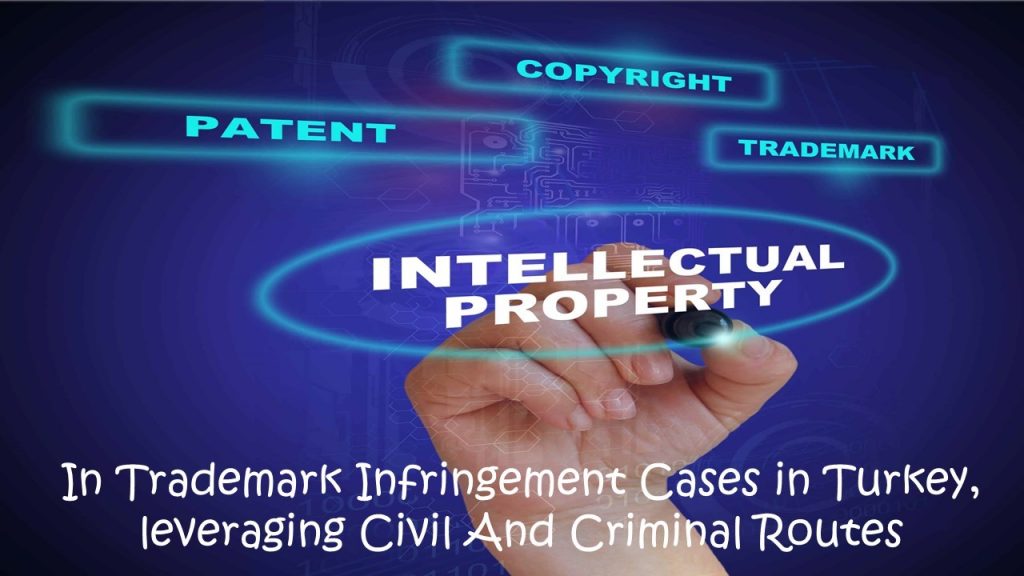Five years have passed since the adoption of Turkey’s new Intellectual Property Code (“IP Code”), which annulled the Trademark Decree-Law no. 556 (“D-L”) back in January 2017. This piece of legislation introduced several changes to the trademark law.
Several modifications to trademark law were made as a result of this piece of legislation. Some revisions had been anticipated for a long time, while others surprised even IP practitioners who were intimately involved in the development of the draft IP Code. Although the Office and the courts have practically completed the implementation of the IP Code, one fairly good revision continues to perplex criminal courts and prosecutors.
The criminal provision of our IP Code reads as follows; Article 30: “A person who produces or provides services, puts on the market or sells, imports or exports, buys for commercial purposes, possesses, transports or stores while infringing a trademark right through quotation or likelihood of confusion, shall be sentenced from one year to three years of imprisonment and punished with judicial fine up to twenty thousand days.”
This clause now clearly authorizes brand owners to pursue infringements caused by confusingly similar uses through the criminal justice system. In our D-L era, we could only pursue criminal action against exact duplicates (the identical use of a brand on the same goods/services), whereas infringement of a brand through confusion would be dealt with by civil courts.
This shift in thinking about trademark infringement as a criminal offense opened up a new and far broader playing field for brand owners. While civil actions have some advantages, such as the option of a preliminary injunction that remains in effect and can be used throughout the court proceedings, criminal actions are usually faster and more cost-effective, as opposed to a search and seizure order issued by a criminal court that can only be used once.
Prosecutors and criminal courts assess complaints and decide on search and seizure orders in a workday or two, if the brand owner has sufficient evidence1. This means that infringing items might be confiscated – or infringing use could be stopped – within a day or two.
Taking criminal action against trademark infringers allowed brand owners to expand their brand protection alternatives, particularly in urgent instances that required quick attention and a court-ordered seizure decision. It is critical to act swiftly in cases where the infringement can be corrected or the infringing goods can be transferred quickly.
Civil court actions – particularly preliminary injunction rulings – remain highly effective and valid tools
In a recent example, we took advantage of this change in the law and were able to intercept the “ROWDY BULL” energy drinks being shipped at a Customs Directorate in Southern Turkey. It is not a “counterfeit” Red Bull energy drink per se, yet it is highly infringing given Red Bull GmbH’s registered trademarks and well-known product get-up.
We initiated a civil court case in Izmir city, targeting all parties, after successfully persuading the local prosecutor and criminal court in Hatay province of the seizure of the commodities at the Customs Directorate. In addition, we were successful in obtaining a preliminary injunction against Rowdy Bull products in general. We took all available steps to stop the infringing product and to safeguard the brand owner’s rights as quickly and comprehensively as feasible.
The criminal approach is not only a quick way to get illicit goods, but it also gives the infringer tremendous leverage because the criminal trial could result in a prison sentence. However, the criminal route may not be appropriate in every case of IP infringement, as the criminal authorities’ approach to IP offenses in Turkey varies greatly, especially depending on the extent of violation.
In every infringement case, however, civil court actions – particularly preliminary injunction rulings – remain highly effective and valid tools. It is now reasonable to declare that Turkey’s IP Code permits brand owners to secure their rights and protect their trademarks in the broadest possible way, and that each infringement case will be assessed individually by specialists to determine the best and most successful method.
You can see a list Turkey IP firms here

